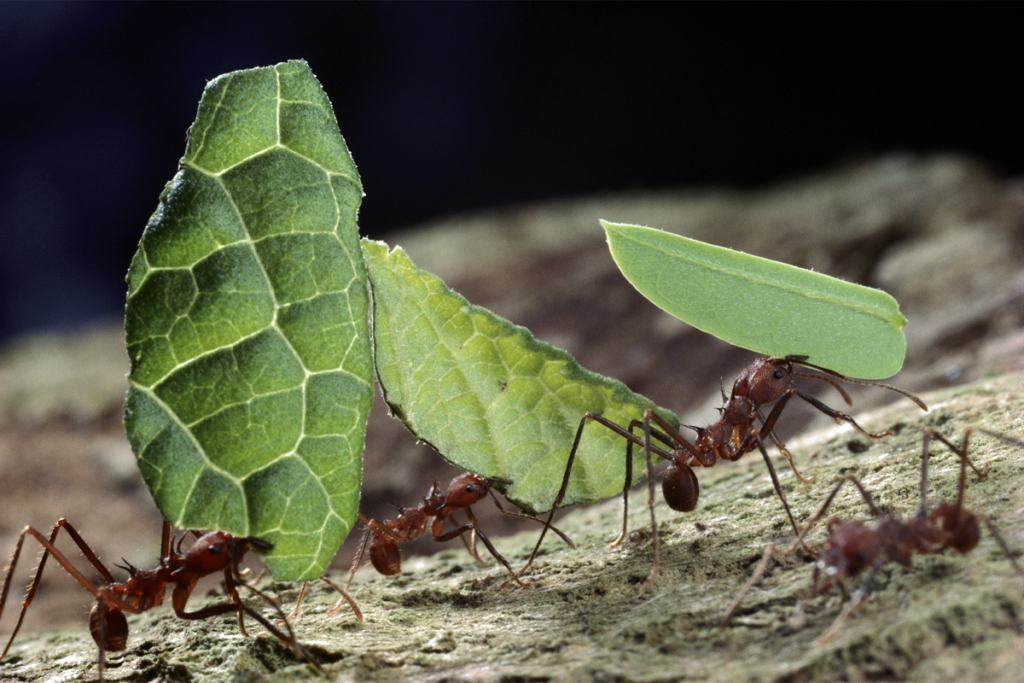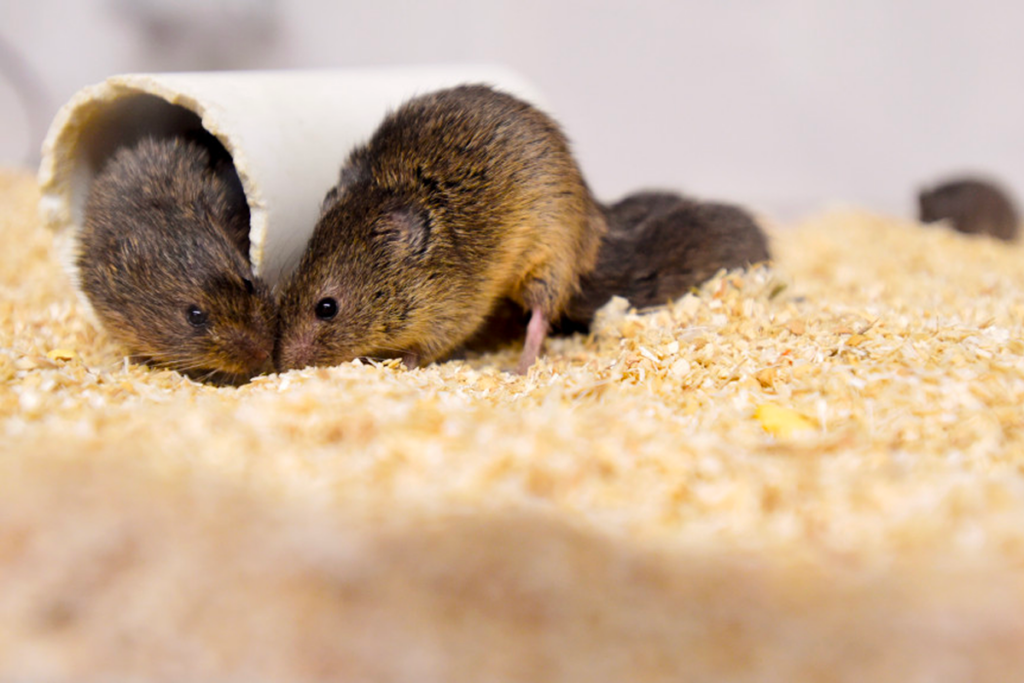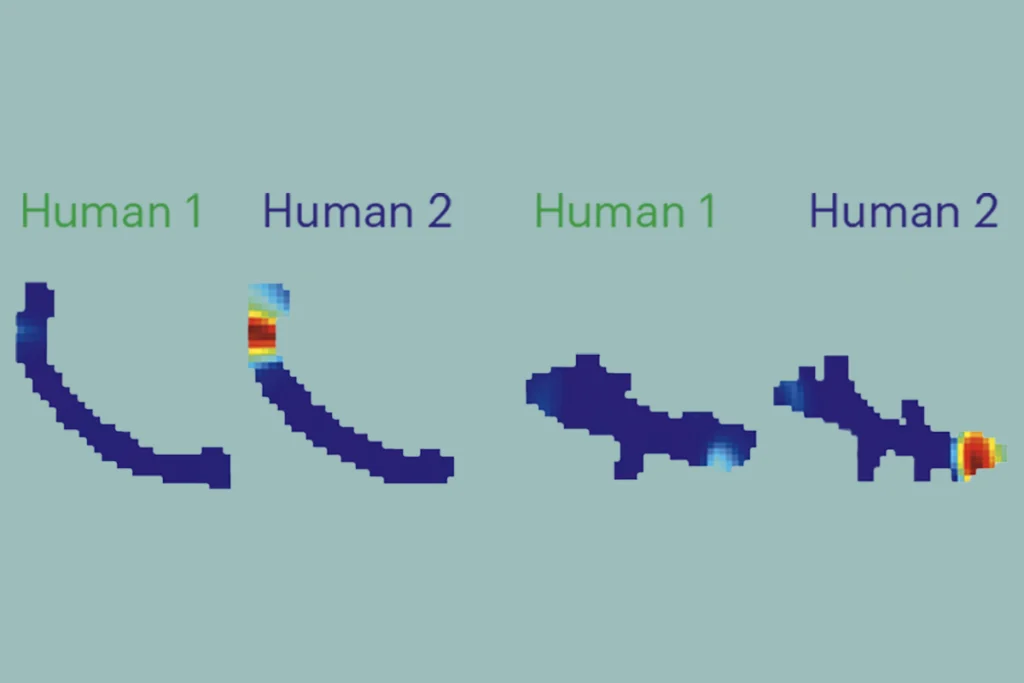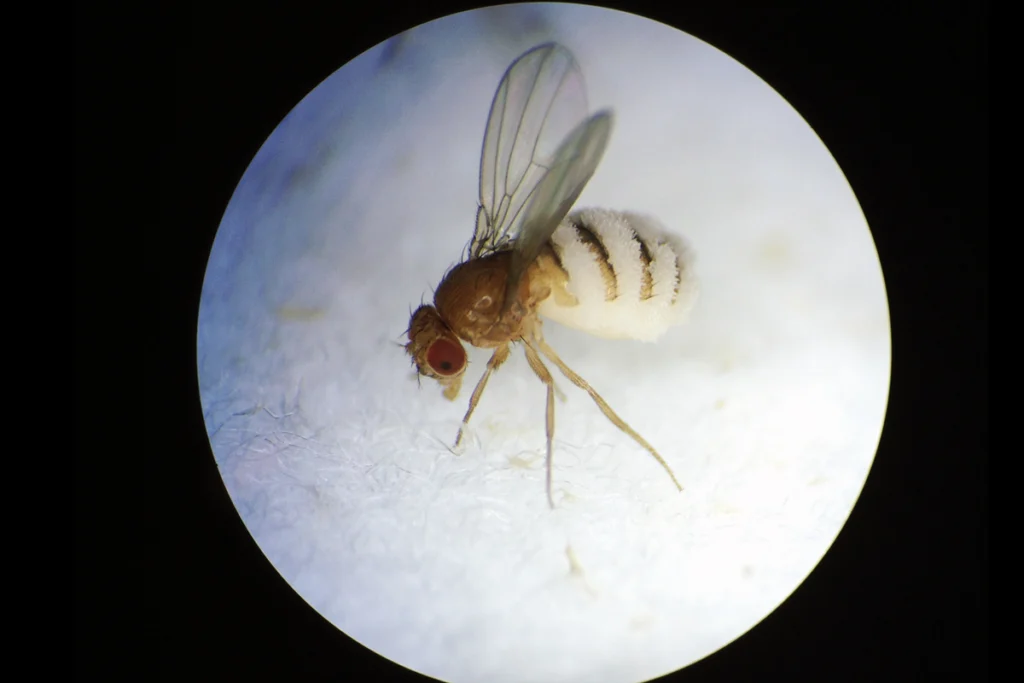Animal behavior
Recent articles
Neuropeptides reprogram social roles in leafcutter ants
The mechanisms that control the labor roles of ants may also be conserved in naked mole rats, a new study shows.

Neuropeptides reprogram social roles in leafcutter ants
The mechanisms that control the labor roles of ants may also be conserved in naked mole rats, a new study shows.
Escaping groupthink: What animals’ behavioral quirks reveal about the brain
Neuroscientists have long ignored the variability in animals’ behavioral responses in favor of studying differences across groups. But work on the brain differences that underlie that variability is beginning to pay off.
Escaping groupthink: What animals’ behavioral quirks reveal about the brain
Neuroscientists have long ignored the variability in animals’ behavioral responses in favor of studying differences across groups. But work on the brain differences that underlie that variability is beginning to pay off.
Brain gene expression syncs between bonded prairie voles
The overlapping activity in the animals’ nucleus accumbens may underpin pair bonding, a new preprint suggests.

Brain gene expression syncs between bonded prairie voles
The overlapping activity in the animals’ nucleus accumbens may underpin pair bonding, a new preprint suggests.
In case you missed it: Standout news stories from 2024
These five stories—on the pregnant brain, a failed imaging method and more—top our list of some of the most notable neuroscience research findings this year.

In case you missed it: Standout news stories from 2024
These five stories—on the pregnant brain, a failed imaging method and more—top our list of some of the most notable neuroscience research findings this year.
Egyptian fruit bats’ neural patterns represent different experimenters
The findings underscore the importance of accounting for “experimenter effects” on lab animals.

Egyptian fruit bats’ neural patterns represent different experimenters
The findings underscore the importance of accounting for “experimenter effects” on lab animals.
Improvising to study brains in the wild: Q&A with Nacho Sanguinetti-Scheck
A joke at a neuroscience summer program nearly a decade ago ignited a lifelong research interest for this Uruguayan scientist—one that plays on his comedic strengths.

Improvising to study brains in the wild: Q&A with Nacho Sanguinetti-Scheck
A joke at a neuroscience summer program nearly a decade ago ignited a lifelong research interest for this Uruguayan scientist—one that plays on his comedic strengths.
Mind control in zombie flies: Q&A with Carolyn Elya
A parasitic fungus compels its insect host to behave in strange ways by hijacking secretory neurons and circadian pathways.

Mind control in zombie flies: Q&A with Carolyn Elya
A parasitic fungus compels its insect host to behave in strange ways by hijacking secretory neurons and circadian pathways.
Dancing in the dark: Honeybees use antennae to decode nestmates’ waggles
The insects align their antennae with their body’s angle to a dancer—information that vector-processing circuitry in the brain deciphers into a flight path, a new study suggests.
Dancing in the dark: Honeybees use antennae to decode nestmates’ waggles
The insects align their antennae with their body’s angle to a dancer—information that vector-processing circuitry in the brain deciphers into a flight path, a new study suggests.
Wild and free: Understanding animal behavior beyond the lab
Technological advancements have made it possible to study animals in more natural settings, but researchers are debating what that really means and whether natural is always better.

Wild and free: Understanding animal behavior beyond the lab
Technological advancements have made it possible to study animals in more natural settings, but researchers are debating what that really means and whether natural is always better.
Explore more from The Transmitter
Frameshift: Raphe Bernier followed his heart out of academia, then made his way back again
After a clinical research career, an interlude at Apple and four months in early retirement, Raphe Bernier found joy in teaching.

Frameshift: Raphe Bernier followed his heart out of academia, then made his way back again
After a clinical research career, an interlude at Apple and four months in early retirement, Raphe Bernier found joy in teaching.
Organoid study reveals shared brain pathways across autism-linked variants
The genetic variants initially affect brain development in unique ways, but over time they converge on common molecular pathways.

Organoid study reveals shared brain pathways across autism-linked variants
The genetic variants initially affect brain development in unique ways, but over time they converge on common molecular pathways.
Single gene sways caregiving circuits, behavior in male mice
Brain levels of the agouti gene determine whether African striped mice are doting fathers—or infanticidal ones.

Single gene sways caregiving circuits, behavior in male mice
Brain levels of the agouti gene determine whether African striped mice are doting fathers—or infanticidal ones.